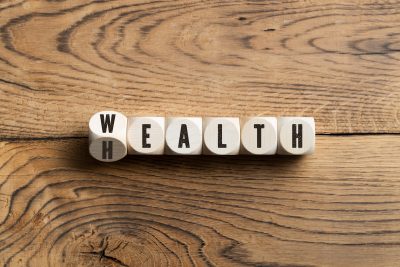The year 2020 has been one for the books. Everyone has been feeling both the direct and indirect effects of the ongoing pandemic. With everything that’s going on, now is a good time to review and understand your good credit with our COVID-19 Credit Check Reminder.
Protecting your credit during COVID – 19
- Reach out to your internet and phone providers for flexibility with payment options.
- Reach out to your auto insurance provider for any possible flexibility. Learn more about our auto insurance coverage here.
- Reach out to lenders for any possible flexibility with payment options. Learn more of our current payment options here.
- Do your best to pay the minimum on your credit card bills every month.
- Keep an eye on your credit score for any fraudulent activity.
- Consider signing up to receive fraud alerts.
- Reach out for financial assistance with a credit counselor.
- Make a budget and do your best to stick with it.
- If you speak with anyone online or via phone, make sure they are someone who could be trusted and working for a trusted company. Learn more on how to protect yourself from COVID-19 scams by clicking here
By keeping a close eye on what information the governor’s office and county officials release, we understand that we are closer to this being over more than before. We also understand that as humans we need to have our minds occupied with personal tasks and objectives to distract ourselves from the possibility of misjudgment stemming from the pandemic.
So let us preoccupy our minds with our COVID-19 credit check to learn some credit basics and position ourselves appropriately for what is next in our financial future.
What makes up your credit score?
35% is payment history
30% is credit utilization/capacity
15% is the length of credit
10% is search & acquisition for new credit
10% is the type of credit
Credit FYI's
- A good credit score will ONLY benefit you.
- Do your best to not miss any payments
- The better your credit, the better rates you will get for car loans, mortgages, credit cards, personal loans, insurance costs and employment opportunities
- When lenders check your credit they may use any one of the three major credit bureaus, Experian, Equifax and TransUnion
- Stabilizing your credit will set a foundation to grow
- Make sure to identify, plan and act upon ways to improve your score
- Hard credit checks are when lenders use your score to decide your rates
- Soft credit checks do not impact your credit score since they are not for a line of credit
- Your credit score is viewed/generated every time a lender requests the information
- You can check your own score at annualcreditreport.com and it will fall under a soft credit check
- Do not close credit cards. This keeps your credit utilization looking great. Meaning you have the resources and have paid them off
What is a credit report?
- Shows amount of debt you have
- Types of credit you have
- The length of time you have had credit cards for
- Hard credit checks stay on your report for a little over two years
- A good credit utilization rate is below 30%
- Lenders typically focus on history of on time payments and low credit utilization
- Credit utilization is how much of your available credit balance you are using

What is a good way to improve credit?
Credit repair companies can only do what you can already do. You can also dispute any incorrect or outdated information.
There are multiple ways to go about improving your credit, but let’s focus on how to improve credit by making the most of credit utilization.
Most people can agree that if you are not using something, you should get rid of it. So when someone pays off their credit card, they may think of closing their credit account right away. However, when it comes to improving your credit, you should consider leaving some credit accounts open. This leaves you to have a bigger pool of credit at your disposal. This is where the importance of credit utilization comes into play. Having a pool of money but only using 30% of it shows lenders that you are responsible with your finances and not blowing through your credit limits.
An example:
You open a new credit card and your limit is $1,000.
What is the most you should spend, ideally?
Up to 30%
So that means…
You should only be spending (borrowing) a maximum of $300 until you pay it off.
Now when you go to pick out a new car and have your credit report checked, the lender will be able to see your credit history and see the card with $1,000 limit and only $300 borrowed, this shows the lender you are financially responsible by not spending your limit or maxing your credit card.
Learn more about:
Auto Insurance by clicking here
COVID-19 business updates by clicking here
COVID-19 Scams by clicking here

